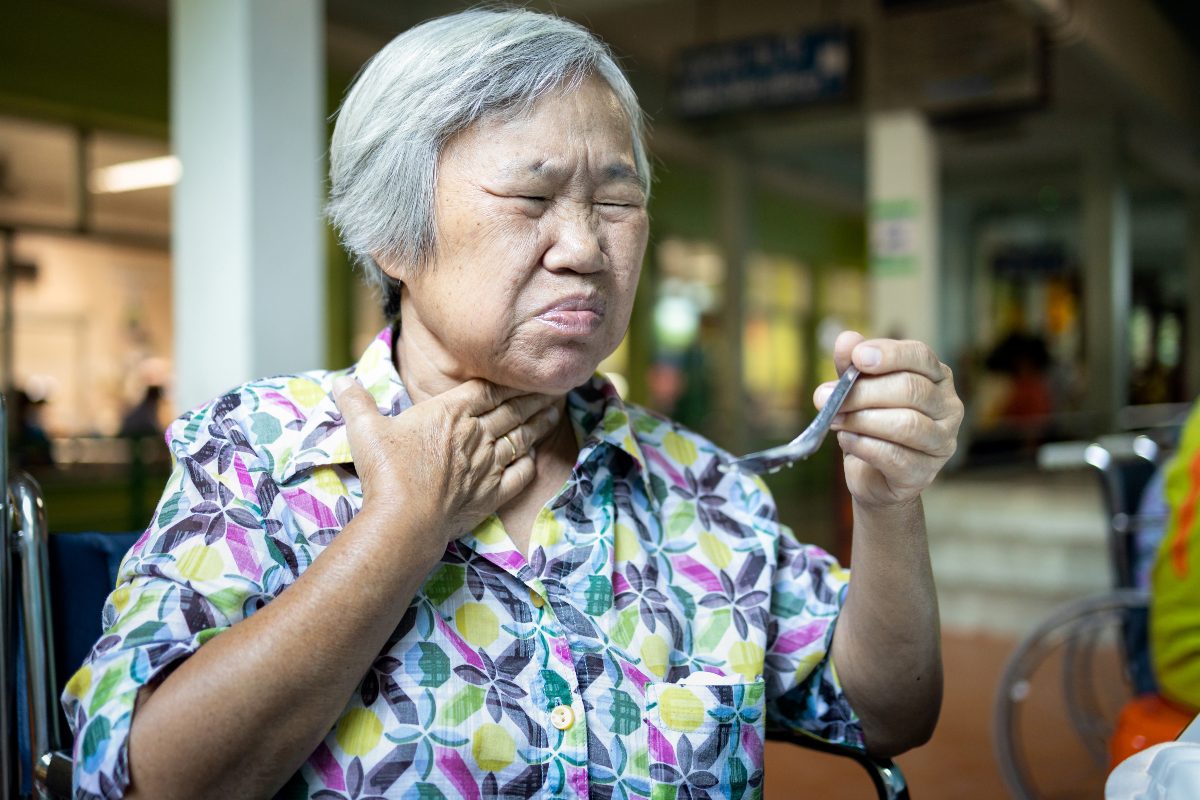
Though a number of elderly and disabled residents who live in nursing home facilities suffer from impairments that can affect their ability to chew and swallow, many of these deaths may be preventable with appropriate care and precautions. Chronic understaffing at nursing homes can result in an inability to adequately supervise residents at risk of choking, and improperly trained staff may be unqualified to care for those with disabilities or illnesses that make swallowing difficult.
Failing to implement appropriate dietary restrictions and monitor residents while eating is a form of nursing home abuse and can contribute to serious injury or death for nursing home residents.
Why Are Older Nursing Home Residents at a Higher Risk of Choking?
As the body grows older, conditions from advanced Alzheimer’s to stroke complications often make eating, drinking, and even breathing difficult for nursing home residents, putting them at an elevated risk for choking and asphyxiation. Additionally, loss of muscle strength in the throat and mouth make it increasingly difficult to swallow hard or dry foods.
The most obvious risk of choking is death. Irreversible brain damage caused by a lack of oxygen can set in after only three or four minutes. Even when the immediate danger passes, choking can cause other problems. Aspiration pneumonia, for instance, is caused when bits of food are inhaled and infect the lungs. Healthy adults can often cough out these foreign objects, but bodies weakened by age or disease sometimes cannot dislodge them.
Failing to closely follow strict food guidelines and dietary restrictions—whether it’s because of impatience, neglect, or ignorance—opens the door for serious choking hazards. Nursing homes have a responsibility to supervise and assist residents with swallowing disorders to reduce this risk. Unfortunately, instances of choking in nursing homes remain an all too common cause of injury and death among the elderly.
Causes of Choking in Nursing Homes
Proper care for residents with difficulty swallowing should include a physician-approved individualized treatment plan that specifies an appropriate diet, eating restrictions, and medication. Adequate staffing should be available to ensure residents are monitored at mealtimes to prevent choking risks such as eating too quickly or eating while lying down. For patients who must obtain their nutritional intake through endotracheal tubes, trained staff must monitor and clean tubes to ensure they remain clear of debris that can cause choking.
Common forms of neglect that can contribute to choking in nursing homes include:
- Failing to monitor eating and drinking
- Providing inappropriate foods or medication
- Allowing dehydration that leads to difficulty swallowing
- Poorly maintaining or monitoring breathing tubes
- Being inattentive to medication side effects
- Failing to monitor respiratory disease that can block the airway
Nursing staff members must follow the patient’s care plan and develop interventions to prevent choking involving residents with swallowing difficulties. If a facility fails to provide your loved one with the proper care they need, resulting in a choking-related injury or death, contact an experienced New York nursing home abuse lawyer as soon as possible to discuss your options.
How Can Choking Deaths in Nursing Homes Be Reduced?
Nursing home choking incidents can be reduced by following a few basic steps. First, all residents need to be properly and periodically assessed for chewing and swallowing problems. Likewise, modified diets such as thickened liquids or soft food should be ordered and delivered to residents with dietary restrictions.
One of the most common forms of nursing home abuse is having inadequate staffing. Facilities are required to have sufficient staff with the appropriate skill sets to carry out the functions required to maintain health and safety while also taking into consideration resident assessments and individual plans of care. On that same note, nursing homes should have easily accessible emergency airway clearance equipment on-site and special eating equipment and utensils for residents who need them.
Contact the Nursing Home Abuse Lawyers at Dalli & Marino
If you or a loved one is facing injury or death from a choking incident and you think someone may be at fault, contact the skilled nursing home abuse attorneys at Dalli & Marino. We’re a group of experienced lawyers that understands New York regulations and government healthcare. Our verdicts and settlements have recovered millions of dollars for our clients since 1996.
Our team of highly-skilled trial attorneys approaches each case on an individual basis and are dedicated to helping you recover the money you deserve to compensate for your injury. Give us a call at (888) 465-8790 or complete our contact form today.


